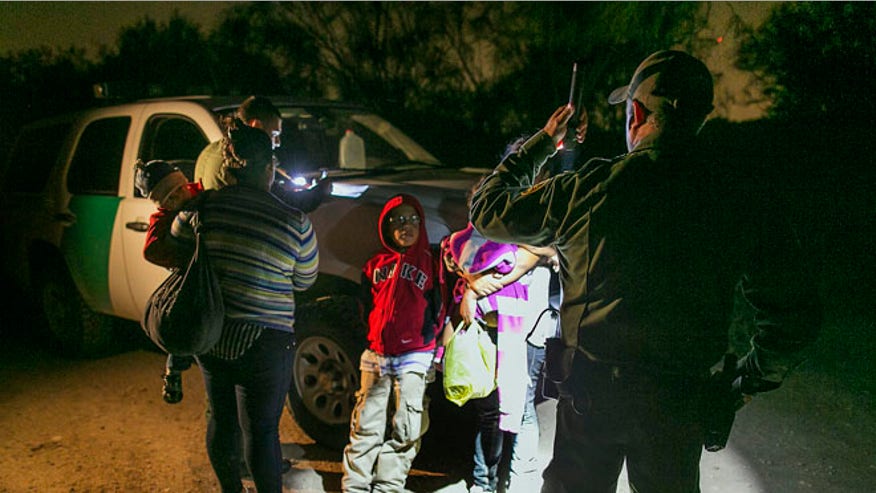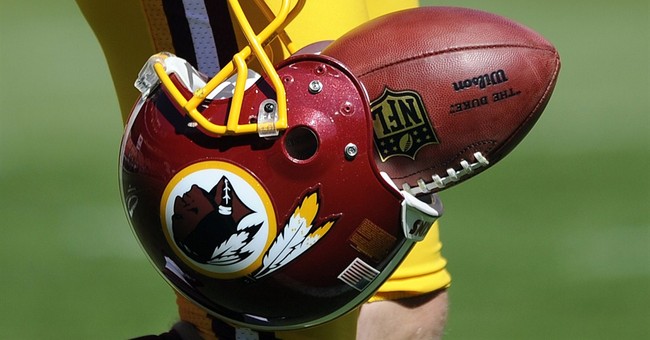One by one, behind closed doors in Washington, D.C.,, military officers explained what they did and didn't do the night the U.S. diplomatic post in Benghazi, Libya, burned.
Together their 30 hours of testimony to congressional investigators gives the fullest account yet of the military's response to the surprise attacks that killed the U.S. ambassador and three other Americans the night of Sept. 11, 2012, and early the next morning.
Transcripts of the interviews, with some names and classified information blacked out, were released Wednesday
The nine officers, including retired Gen. Carter Ham, then the head of the military's U.S. Africa Command, described making on-the-fly decisions with only sparse information about the crisis unfolding at a diplomatic post and the nearby CIA compound.
None of them was in Benghazi. The closest? Some were 600 miles away in Tripoli, the Libyan capital; others gave orders from command headquarters in Germany or Washington.
They did not witness what went on in the White House or at the State Department. Ex-Secretary of State Hillary Rodham Clinton, former Defense Secretary Leon Panetta and others have testified about Benghazi. More hearings are coming.
The nine officers shed light on the nature of the attacks; speculation that the military was ordered to "stand down" from helping Americans; suggestions that the U.S. should have rushed jets or a special operations team to Benghazi; and early misperceptions that the attack began as a protest over an anti-Islam video.
Some lingering questions about the Benghazi attacks and what the officers told the House Armed Services Committee and the House Oversight and Government Reform Committee this year:
_____
DID MILITARY LEADERS INITIALLY BELIEVE THE TROUBLE RESULTED FROM A STREET PROTEST?
Some heard that, some didn't; nothing was clear about events on the ground at first.
One of the earliest reports came from Ambassador Chris Stevens, who told his deputy in a phone call cut short: "We're under attack."
"We started calling it an attack from inception," said Army Lt. Col. S.E. Gibson, who was at the U.S. Embassy in Tripoli. "We never referred to it as anything else."
Another military official in Tripoli, whose name was withheld, said he wasn't sure how to interpret that word — "attack" — at first.
He had heard about protesters who scaled the walls of the U.S. Embassy in Cairo earlier that night. "It could be, you know, vandals are attacking," he said.
Retired Vice Adm. Charles "Joe" Leidig Jr., deputy commander of AFRICOM, said he was awoken in the night at his headquarters in Germany with word that "there had been protesters, and they had overrun the facility in Benghazi."
But Ham, who was alerted while visiting the Pentagon, said he heard no mention of protesters.
So he's sure he didn't pass on anything like that when he informed Panetta and Gen. Martin Dempsey, chairman of the Joint Chiefs of Staff, of the attack. Dempsey and Panetta personally took word to President Barack Obama at the White House.
Speaking for the Obama administration, then-U.N. Ambassador Susan Rice appeared on Sunday talk shows five days later and suggested the attacks were born from regional protests against an anti-Islamic video. The administration later recanted that position but never thoroughly articulated what they believe happened. Republicans say Obama soft-pedaled a terrorist attack to protect his re-election.
Over the two days when the attacks were occurring, there was "very, very little discussion that I can recall about why did this happen." Ham said. "There just wasn't time for that, frankly."
____
WAS A FOUR-MAN TEAM HEADED FOR BENGHAZI ORDERED TO STAND DOWN?
Technically, no, the team was not ordered, as some have asserted, to stand by as militants attacked Americans 600 miles away. But they were told not to go to Benghazi and instead to stay and protect personnel in Tripoli. In hindsight, the attacks were over by then, anyway.
The special operations officer leading that team and the commander who gave him the order both told investigators that it was the right decision.
The team, led by Gibson, was in Tripoli to help train Libyan special forces. When the Benghazi attack began, Gibson's first duty was to protect the embassy in Tripoli amid fears that it also would be targeted. He helped evacuate the staff to a classified, more-secure location. Once he felt they were safe on the morning of Sept. 12, Gibson was ready to rush to Benghazi to help.
One Libyan plane carrying a six-man U.S. security team already had taken off. Gibson wanted his group on the second chartered flight. He called the special operations command center for Africa to say they were heading to the airport.
He was told, "Don't go. Don't get on that plane."
"Initially, I was angry," he recalled. "Because a tactical commander doesn't like to have those decisions taken away from him. But then once I digested it a little bit, then I realized, OK, maybe there was something going on. Maybe I'm needed here for something else."
Rear Adm. Brian Losey, who gave the order, said he needed Gibson's team in Tripoli in case trouble started there.
Although some Republican lawmakers have suggested the team might have helped repel attackers in Benghazi, their flight would have arrived after the final assault that killed two CIA contractors.
Losey dismissed the notion that the foursome could have been much help in Benghazi, where Americans already were moving to the airfield for evacuation with the aid of Libyan forces and the U.S. security team from the first plane. Losey noted that Gibson's group consisted of a communications specialist, a medic and a weapons operator with his foot in a cast.
"That's not a security team," Losey said. Sending them in "didn't make a lot of sense."
Gibson said if his group had flown to Benghazi, their flight would have crossed paths with the first plane as it returned bearing wounded Americans. Because they stayed, his medic was there to meet two seriously injured people at the Tripoli airport. The medic is credited with saving one's life.
___
RIGHT OR WRONG, WASN'T THAT AN ORDER TO "STAND DOWN"?
Not according to Losey and Gibson.
Civilians might say that Losey ordered Gibson to stand down from his race to the scene. But Losey and Gibson say in their military parlance, standing down means ceasing operations.
"It was not a stand-down order," Gibson said. "It was not, 'Hey, time for everybody to go to bed.' It was, you know, 'Don't go. Don't get on that plane. Remain in place.'"
"It was never an order to stand down," Losey said. "It was an order to remain in place and continue to provide your security role in Tripoli."
___
DID CLINTON GIVE A "STAND DOWN" ORDER, AS SOME REPUBLICANS HAVE THEORIZED?
"No," said Losey.
"I never received any orders from the secretary of state or heard of any orders from the secretary of state," said Leidig, also based in Stuttgart, Germany.
"No," said Ham, who commanded the Africa operations. "And we would not receive direct communications from the secretary of state."
Ham said no one else ordered him to stand down, either, and no one tried to stop him from helping the Americans in Benghazi any way he could.
"The conversation really was more along lines of, you know, 'What do you need? What can we do?'" he said. "And every request for forces that I asked of the secretary of defense was approved."
___
WHAT DID THE MILITARY DO TO HELP?
Following the first report of trouble about 9:40 p.m. local time on Sept. 11, officials began looking for military planes that could head to Benghazi for evacuations. None would be available for hours.
An unmanned drone already in Libya was quickly sent to survey the situation at the diplomatic post. Nighttime darkness limited its usefulness.
Two military members — both from Special Forces — were in the six-man team that flew from Tripoli to Benghazi around midnight and aided with the defense and evacuation of the CIA base.
An Air Force C-17 transport plane flew the Benghazi evacuees from Tripoli to Germany the night of Sept. 12, about 24 hours after the attacks began.
A U.S. anti-terror team sent from Spain arrived in Tripoli after the evacuees had gone.
Two military teams — one in Croatia and the other in the U.S. — prepared to go but, as the situation changed, weren't brought to Libya. They would have arrived too late.
Not until the morning of Sept. 12 was the 31st Fighter Wing in Aviano, Italy, ordered to get four F-16 jets and four pilots ready to respond if needed. The call to Benghazi never came.
___
WHY DIDN'T THEY SCRAMBLE THE F-16 FIGHTERS?
Military leaders decided early on that jets armed with 500-pound bombs were unsuited for the chaotic crisis in an urban area.
"Ultimately, it was my decision that said no, not the right response in this circumstance," Ham said.
He didn't have anyone on the ground to provide target information for airstrikes. He didn't want to harm innocent people or risk inflaming more Libyans to join the attack. He believed some militants had missiles capable of downing a plane.
"Had I made a different decision, had strike aircraft deployed, we don't really know what the outcome would have been," Ham said. "Maybe it would have been positive, but maybe it would have got shot down. Maybe it would have killed civilians."
Brig. Gen. Scott Zobrist, then the wing commander at Aviano, had similar worries. He said that, even if called right away, it would have taken 20 hours to get jets to Benghazi from the base in Italy normally used for training flights.
Pilots would have to be recalled from their homes, bombs loaded onto planes, the 1,000-mile route planned. The jets would need refueling along the way, which meant coordinating with tanker planes stationed in England — something that typically takes days to plan.
___
COULD THE MILITARY HAVE DONE MORE?
Perhaps.
In hindsight, Ham said, he should have reached out to his Libyan contacts and other U.S. officials to get Americans evacuated from Benghazi faster. That might have saved the two lives that were lost hours after the first attack at the diplomatic post.
While the evacuation from Benghazi was being planned by the embassy and the CIA, Ham said, he switched his focus toward gearing up a possible hostage rescue mission, because the ambassador was still missing.
Meanwhile, surviving U.S. personnel were gathered at the CIA base in Benghazi. Ham said he believed they were relatively safe. He and other military leaders said they weren't told that the CIA compound already had come under gunfire and rocket-propelled grenade attacks in the middle of the night.
The U.S. security team that arrived at the Benghazi airport after midnight was detained by Libyan officials for several hours. That delayed the evacuation, Ham said, and "allowed sufficient time for the second attack to be organized and conducted."
During that attack, around 5 a.m., mortar fire killed two CIA security contractors on the roof and wounded other Americans.
Less than an hour later, the evacuation of all American personnel from Benghazi began.
© Copyright 2014 The Associated Press. All rights reserved. This material may not be published, broadcast, rewritten or redistributed.



